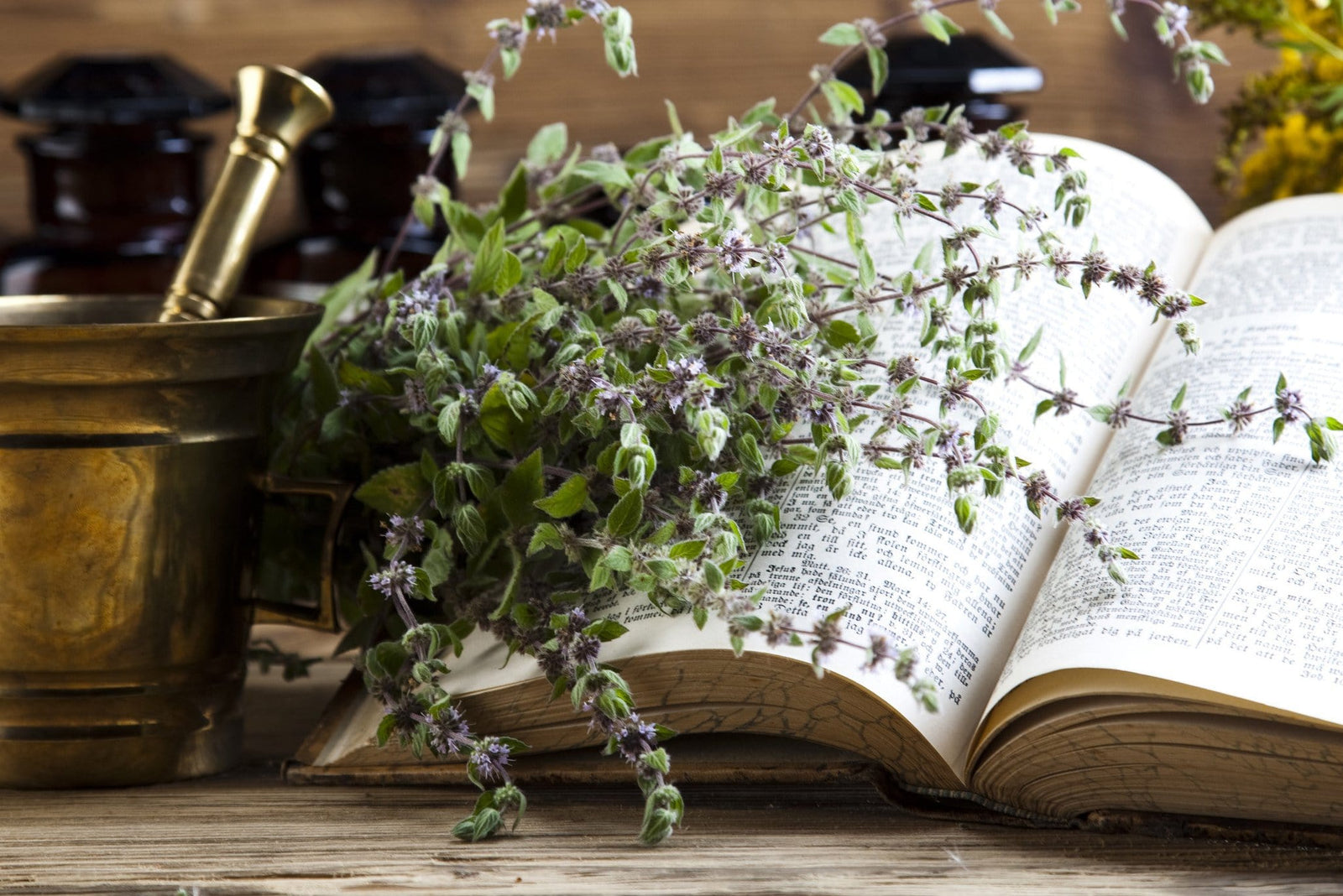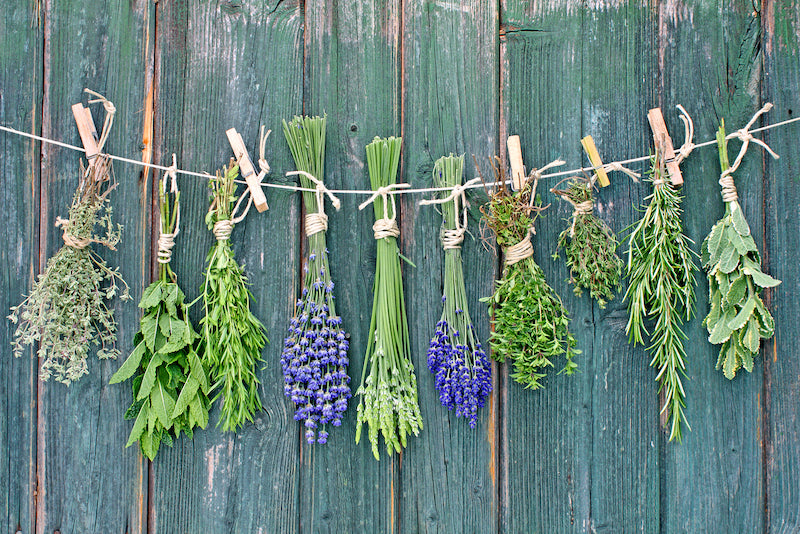Natural Skincare Terms Explained

Natural skincare is exciting. A foil to the world of social media, mobile apps and image editing software where anything goes. Real beauty, authentic beauty if you like.
Uneven skin tone - sorted at the push of a button. Blemishes? No problem, gone with the click of a mouse.
That is the way of beauty today.
Or is it?
Increasingly there is a move back to natural beauty that tells a story, that shows us as we are, recognisable, a better, more radiant version of ourselves.
Where less equals more. And with a focus on enhancing our natural features rather than hiding them.
As the natural skincare movement grows in momentum, and mainstream companies rush to join the green market and bolster their revenues, we are seeing a plethora of skincare terms plastered across bottles and jars, which give the impression of enticing, natural, wholesome products.
Flashes of pale green splashed across labels, with delicate flower buds and hand drawn floral illustrations that look oh-so-appealing.
Couple that with words like 'Pure' Skincare, 'Clean' Skincare, 'Chemical Free' 'Non-Toxic' and these products must be natural and wholesome and good for me, right?
Well not necessarily.
So here's my guide to some of the most common skincare terms explained, the sneaky little tricks used by the big boys and how you can really figure out what's in that beautiful looking bottle.
Let's start with the basics.
Natural Skincare
This term is used widely and is often use to denote ingredients that are derived from nature to the exclusion of 'synthetic' ingredients. It can be used to describe all ingredients or just a fraction of the total number of ingredients contained within the product. Because the term is unregulated, it can be used to mean many different things, and therein lies the problem.
So how do you know what’s really in your product? You need to read the ingredients and see what's going in behind the glossy packaging. It doesn't have to be complex, you can get a really good idea by glancing through the list. You can also check out my guide to decoding labels like a pro.

Naturally Derived Skincare
A completely natural ingredient is going to be different to a naturally derived ingredient - though there are often similarities.
Take Coconut oil for example, in it’s raw state you will find it on your ingredients list as Cocos Nucifera Oil. Take that a step further, and you can find a naturally derived ingredient which is based on the raw ingredient, but that has undergone some sort of processing or refinement process.
For example, you will often see 'Caprylic/Capric Triglyceride' listed as an ingredient in facial oils, body oils and creams. It is derived from coconut oil with the addition of glyercin and has been processed.
Does this mean this a bad choice for your skincare? Not necessarily.
By processing or refining you can get some of the benefits of the original ingredient combined with additional characteristics.
Caprylic/Capric Triglyceride is a light emollient, fragrance free and comes with a long shelf life, features which are valued in the world of commercial skincare. It is also relatively inexpensive compared to the original raw ingredient.
It's all about choice and deciding what ingredients you want and are prepared to pay for.
If you want to understand more about the differences in ingredients in commercial skincare versus small batch or artisan skincare, check out 5 Truths About Commercial Skincare.
Preservative Free Skincare
Preservatives get a bad rap in the world of green skincare, and preservative free claims have become super trendy.
My key objective with using a preservative is to give my customers products that are safe; a cream product containing water has to contain a preservative system to be safe, otherwise it would have a shelf life of just days and would need to be kept refrigerated.
There's lots to be said for fresh beauty recipes and formulations, cream, avocado, honey are all fabulous ingredients you can use to whip up some skin loving treats - but they need be used pretty much straight away.
So as a general rule, creams, toners, serums - any water containing products will contain a preservative to keep it safe to use. Note this will also apply to floral waters or hydrolats.
There are very few natural and effective preservatives and even within certified organic, natural skincare, some synthetic preservatives are permitted.
To further confuse the consumer there are some ingredients that are not classed as a preservative but as a fragrance or 'parfum' and that is how some brands are able to make preservative free claims on a water based product. Sneaky right.
My advice? If you are wanting to avoid preservatives, look for oil or dry powder based products. But don't be afraid of preservatives in your skincare, they are there for a reason, and for most people the risk of something green and furry growing in your favourite jar of cream outweighs the risk of any preservative.

Organic Skincare
One of my favourite terms, but often sneakily manipulated and misused on labels.
Organic refers to a system of agriculture used to grow skincare ingredients. This means a system of agriculture producing ingredients sustainably without chemicals and synthetics which are widely used in the industry today.
This allows ingredients to be tracked from where they grow to where they end up in your favourite skincare products.
A very common marketing tactic by the big boys is to shove organic in large letters across a label dotted with delicate flower drawings, but only contain 1 single organic ingredient, or worse, 1 ingredient at 0.1%.
Organic raw ingredients are many times more expensive than their regular counterpart. Couple that with the huge growth in green skincare and the desire to piggy back on this growth and you find some producers being a little creative with their marketing.
Because the term organic skincare is not regulated, it's up to you check out those ingredients to see what's really organic - and play the marketers at their own game.
How do you know? Many brands will stipulate which ingredients are organic and often volunteer a total percentage of organic ingredietns (as we do) so you know what you are getting.
There are also a number of organisations that certify organic skincare, but they all apply slightly different rules to what is in and what is out, so you may need to check out the specific certification body.
Cruelty Free Skincare
No skincare products should need to be tested on animals.
The good news is that for many countries in the world, and the EU in particular, there has been a total ban on animal testing on skincare since March 2013.
If you are buying your skincare products from within the EU, you can be confident your products have not been tested on animals.
For some markets outside of the EU, with China being the most notable example, to enter the market brands are obliged to test on animals as part of the market entry process, and that is why it's important to understand if your favourite brands are being sold in China.
We're a Little Different...
I focus on ingredients that actually make a difference. I like organic; I like my skincare ingredients to not have been fiddled with too much. And I definitely prefer them without pesticides. I do the worrying so you don't have to.
British luxury designed for modern women who want to look and feel amazing in today's frantic-paced lifestyle!


Leave a comment